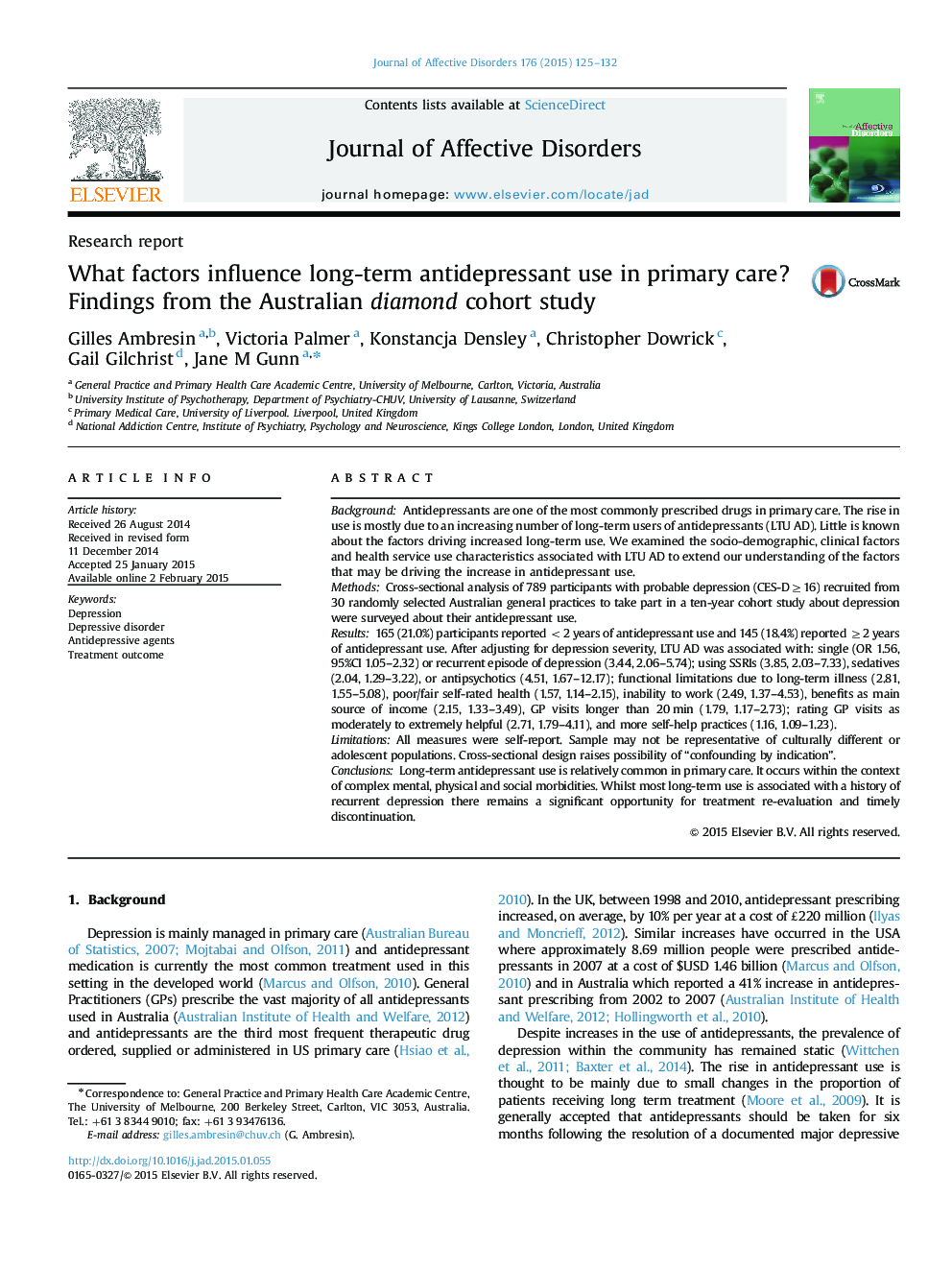| Article ID | Journal | Published Year | Pages | File Type |
|---|---|---|---|---|
| 4185958 | Journal of Affective Disorders | 2015 | 8 Pages |
BackgroundAntidepressants are one of the most commonly prescribed drugs in primary care. The rise in use is mostly due to an increasing number of long-term users of antidepressants (LTU AD). Little is known about the factors driving increased long-term use. We examined the socio-demographic, clinical factors and health service use characteristics associated with LTU AD to extend our understanding of the factors that may be driving the increase in antidepressant use.MethodsCross-sectional analysis of 789 participants with probable depression (CES-D≥16) recruited from 30 randomly selected Australian general practices to take part in a ten-year cohort study about depression were surveyed about their antidepressant use.Results165 (21.0%) participants reported <2 years of antidepressant use and 145 (18.4%) reported ≥2 years of antidepressant use. After adjusting for depression severity, LTU AD was associated with: single (OR 1.56, 95%CI 1.05–2.32) or recurrent episode of depression (3.44, 2.06–5.74); using SSRIs (3.85, 2.03–7.33), sedatives (2.04, 1.29–3.22), or antipsychotics (4.51, 1.67–12.17); functional limitations due to long-term illness (2.81, 1.55–5.08), poor/fair self-rated health (1.57, 1.14–2.15), inability to work (2.49, 1.37–4.53), benefits as main source of income (2.15, 1.33–3.49), GP visits longer than 20 min (1.79, 1.17–2.73); rating GP visits as moderately to extremely helpful (2.71, 1.79–4.11), and more self-help practices (1.16, 1.09–1.23).LimitationsAll measures were self-report. Sample may not be representative of culturally different or adolescent populations. Cross-sectional design raises possibility of “confounding by indication”.ConclusionsLong-term antidepressant use is relatively common in primary care. It occurs within the context of complex mental, physical and social morbidities. Whilst most long-term use is associated with a history of recurrent depression there remains a significant opportunity for treatment re-evaluation and timely discontinuation.
